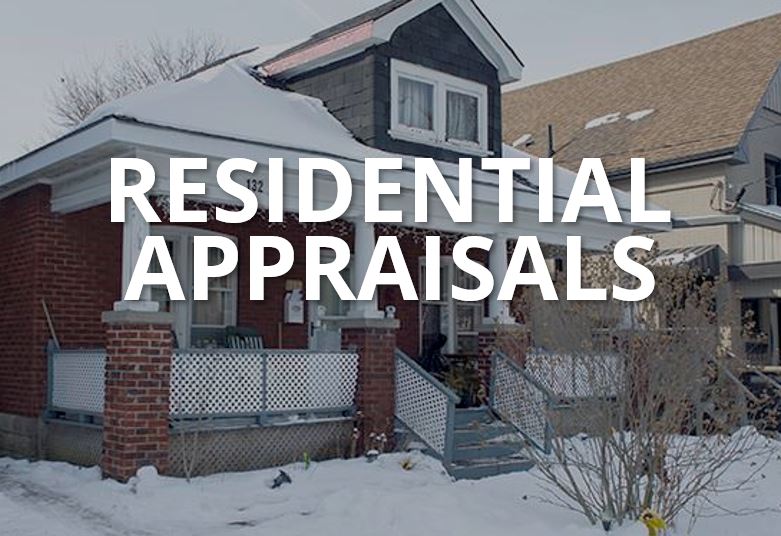Residential appraisals are more straightforward than you think
You’ve sold your house, but your offer is conditional upon an appraisal by the bank. What does this mean?
The buyers of your home have applied for a mortgage from a bank, with the house used as collateral. The bank gets an appraisal to ensure that there’s enough value in the home to cover the mortgage in the event the buyers default. (Depending on the financial institution, the client and the economic climate, the bank may have rules around the percentage of the value they will loan the client. Typically this is 80% of the home value or less.)
To determine value, the financial institution will engage an appraiser. While some banks have in-house appraisers, in southern Ontario it’s more common for a bank to engage an independent appraiser with specific experience in the geographical area.
While, in some cases, the bank will accept an appraisal from a local real estate agent, they generally prefer to have appraisals done by appraisers who have been certified by the AIC (Appraisal Institute of Canada). AIC-certified appraisers are professionals who have to meet high standards of knowledge, professionalism, ethics and experience, so their valuations are generally considered to be more objective and accurate.
There are two AIC certifications:
CRA: Certified Residential Appraiser. CRA-certified appraisers can appraise residential properties and land or lots designated for residential development.
AACI: Accredited Appraiser Canadian Institute. Appraisers with the AACI designation can appraise any type of property, including residential homes, commercial, industrial and agricultural properties, with machinery and equipment.
Regardless of the appraiser the bank chooses to value your home, the basic process is the same: The appraiser will visit your property, take a good look (and photographs) inside and out, and then compare your home with others which have recently sold in the neighbourhood in order to determine the market value for your property.
It doesn’t seem complicated – but appraising a property involves years of experience, training and knowledge, about house construction, land values, market conditions and the overall economy.
Want to know more about residential appraisals? Get in touch.



14 Comments
MyBlog
August 14, 2025 - 12:23 pmitstitle
excerptsa
buying enclomiphene usa discount
August 17, 2025 - 8:10 amorder enclomiphene generic no prescription
ordering enclomiphene canada shipping
achat kamagra pharmacie au rabais pour
August 17, 2025 - 9:14 ampharmacie en ligne kamagra
acheter kamagra pilule du lendemain
ordering androxal generic good
August 17, 2025 - 10:25 amordering androxal how to purchase viagra
discount androxal generic how effective
online order dutasteride cost per tablet
August 17, 2025 - 12:26 pmbuying dutasteride generic from the uk
order dutasteride cheap with prescription
buying flexeril cyclobenzaprine generic version
August 17, 2025 - 12:30 pmcheap flexeril cyclobenzaprine generic cheapest
how to buy flexeril cyclobenzaprine buy uk no prescription
get gabapentin purchase tablets
August 17, 2025 - 2:42 pmpurchase gabapentin cheap from india
how to order gabapentin canada drugs
cheap fildena no rx needed
August 17, 2025 - 3:14 pmbuy cheap fildena generic sale
online order fildena price south africa
how to get itraconazole prescription on line
August 17, 2025 - 4:09 pmhow to buy itraconazole generic dosage
cheapest buy itraconazole generic overnight shipping
staxyn cod delivery next day
August 18, 2025 - 3:45 amorder staxyn cod next day delivery
purchase staxyn cheap drugs
cheap avodart no rx needed
August 18, 2025 - 4:00 amhow to get avodart prescription on line
purchase avodart canada suppliers
online order rifaximin no prescription needed
August 18, 2025 - 5:56 ambuy cheap rifaximin generic canada
get rifaximin cheap from usa
how to buy xifaxan canada drugs
August 18, 2025 - 6:57 amordering xifaxan generic switzerland
order xifaxan price generic
kupte si kamagra online bez souhlasu dr
August 18, 2025 - 8:20 amsleva obecná kamagra
comprar kamagra sin receta medica se puede comprar